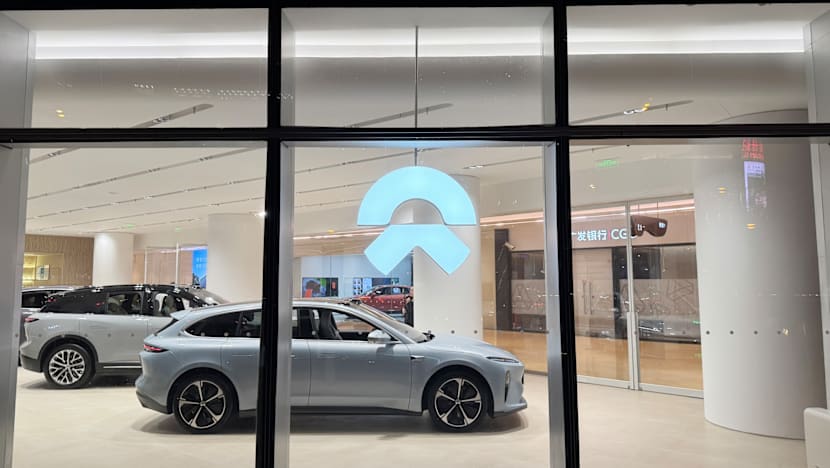Singapore's GIC sues Chinese EV maker Nio for allegedly inflating revenues
Nio's share price fell by over 13 per cent after the lawsuit was published.

View of a Nio store in Shanghai. (File photo: iStock)
SINGAPORE: Singapore's sovereign wealth fund GIC has sued Chinese electric vehicle (EV) maker Nio and two of its top executives for allegedly inflating revenues.
In the lawsuit, filed in August in the US district court for the southern district of New York, GIC said Nio and two executives misled investors with false statements and withheld information about its business and prospects.
These include the company's ties to an affiliated firm called Nio Battery Asset, known as Weineng in Chinese.
Nio stock plunged more than 13 per cent on Thursday (Oct 16), on course for its biggest one-day drop in about six months, as investors fretted over the company's outlook amid the lawsuit.
The stock fell as far as HK$47 (US$6.05), its lowest since Sep 11, and was the biggest percentage loser on Hong Kong's Hang Seng Tech Index and Hang Seng Automobile Index, which fell 1.5 per cent and 1.7 per cent respectively.
The drop followed a Wednesday report on the lawsuit from Chinese financial news magazine Caixin.
GIC declined to comment. CNA has contacted Nio for more information.
"TREMENDOUS LOSSES"
According to court documents, GIC said the defendants' statements artificially inflated the value of Nio's securities.
It added that when this came to light, Nio's securities plunged in value, causing it to suffer "tremendous losses".
GIC is one of the world's largest sovereign wealth funds, managing foreign reserves and investing globally across sectors such as technology and infrastructure.
Nio is a Chinese company that designs, develops, manufactures and sells EVs. The company went public in the US in 2018.
It offers customers the ability to swap EV batteries at stations rather than waiting many hours for the batteries to recharge. Batteries account for about 30 to 40 per cent of the total cost of the EVs, said GIC.
In early 2020, Nio faced a severe liquidity crisis in part due to this service, according to the lawsuit. In the same year, the defendants directed Weineng to buy all the leased batteries from Nio and this allowed Nio to book the full revenue from those battery sales.
This was an issue because Nio held a controlling financial interest in Weineng and was its primary beneficiary, GIC contended in its suit.
It added that the Nio and the top executives issued "materially false and misleading statements and omissions that misrepresented" Nio's relationship with Weineng and the company's true revenue and earnings figures.
The sovereign wealth fund is seeking compensation for all damages sustained by the alleged wrongdoing and legal costs.













